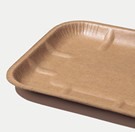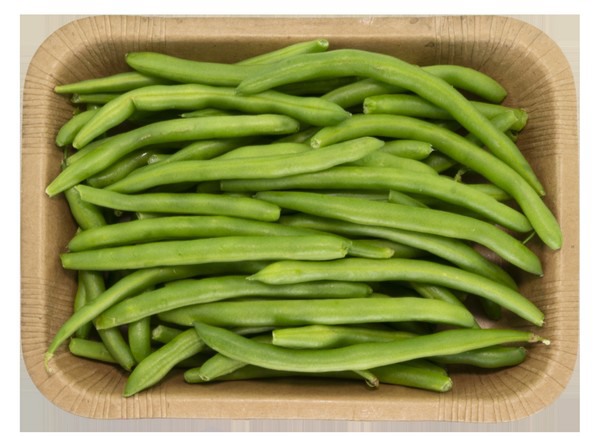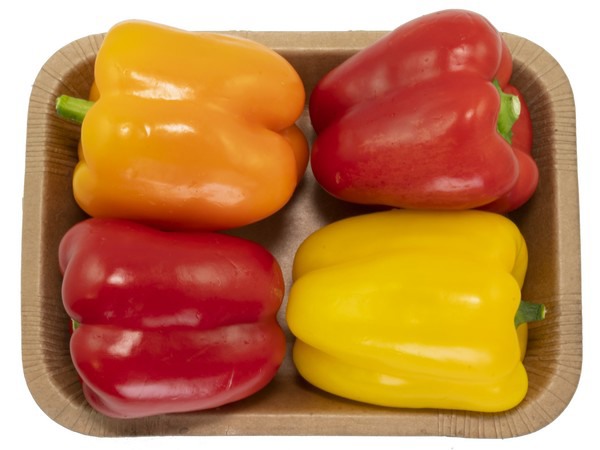 Cascades, a North America and European based packaging company, is launching the first thermoformed cardboard tray. The product is made from 100 percent recycled and recyclable cardboard and has a recyclable water-based barrier coating which prevents moisture. “The cardboard tray makes a true alternative to plastic and foam trays,” says Jacques Bissonnette with Cascades’ Canada office. “Sustainable packaging is getting more important, enforced by retail regulations as well as consumer demand,” he added.
Cascades, a North America and European based packaging company, is launching the first thermoformed cardboard tray. The product is made from 100 percent recycled and recyclable cardboard and has a recyclable water-based barrier coating which prevents moisture. “The cardboard tray makes a true alternative to plastic and foam trays,” says Jacques Bissonnette with Cascades’ Canada office. “Sustainable packaging is getting more important, enforced by retail regulations as well as consumer demand,” he added.
“In November of last year, we did a successful soft launch in Canada with the cardboard tray for mini cucumber. Just this month, a US customer started using the trays for sweet corn.” The product is available in a range of different sizes from 8 2/16 inches length, 8 11/16 inches wide to 1 11/16 inches height. However, Cascades also offers tailormade solutions. The tray is suitable for a wide range of fruits and vegetables, from Brussels sprouts to bell peppers, green beans, and much more. “The package will stand out even more if it is combined with a compostable top seal film, making it a fully sustainable solution,” Bissonnette added.

Telling the story
“We think it’s really important to tell the story how sustainable packaging can help to reduce the environmental footprint and achieve the retailer’s sustainability goals." To support the story, Cascades has developed an LCA (Life Cycle Assessment) for all its product lines.
“This means we can tell the client exactly the amount of environmental footprint reduction they will be able to achieve with one of our sustainable solutions compared to the material they are using currently.” A lot of the current plastic packaging as well as foam packaging can be replaced by this cardboard solution and has proven to offer equivalent shelf life to plastic”. The new cardboard tray works with existing machinery and tooling for plastic trays, meaning that no extra investment is required for producers or packers looking to make the switch to cardboard.”

Cascades also invested in research on the consumer side. “It’s not only the demand for sustainability that has grown but also the willingness among consumers to put their money where their mouth is,” said Bissonnette. Most consumers are willing to pay a bit more for produce that is sustainably packaged. Also, better labeling on the packaging would encourage consumers to buy more green, sustainable packaging. “It is still a bit more expensive but both producers and retailers should not be afraid to raise their prices a bit. We are not talking about full dollars but just a few cents, ” Bissonnette noted. For more information:
For more information:
Jacques Bissonnette
Cascades Specialty Products Group
Tel:+ 1 514-378-0332
jacques_bissonnette@cascades.com
https://www.cascades.com
